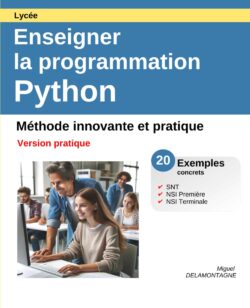1. A propos de la fonction help()
La fonction Python help() est utilisée pour obtenir de l'aide relative à l'objet passé en paramètres. Il prend un paramètre facultatif et renvoie des informations d'aide. Si aucun argument n'est donné, il affiche la console d'aide Python. Il appelle en interne la fonction d'aide de python.
2. Syntaxe, Paramètres & exemples
Syntaxe
|
1 |
help(objet) |
Paramètres
objet: il peut s'agir de n'importe quel objet pour lequel nous souhaitons obtenir de l'aide: string, liste, dictionnaire, objet d'instance etc.
Valeur de retour
Il renvoie les informations de l'objet passé en paramètres.
Voyons quelques exemples de la fonction help() pour comprendre sa fonctionnalité.
Exemple sans paramètre
|
1 2 3 4 5 6 7 8 9 10 11 12 13 14 15 16 17 18 19 20 21 |
# Exemple de la fonction Python help() # appelle de la fonction help() informations = help() # No argument # afficher le résultat print(informations) """ output Welcome to Python 3.10's help utility! If this is your first time using Python, you should definitely check out the tutorial on the internet at https://docs.python.org/3.10/tutorial/. Enter the name of any module, keyword, or topic to get help on writing Python programs and using Python modules. To quit this help utility and return to the interpreter, just type "quit". To get a list of available modules, keywords, symbols, or topics, type "modules", "keywords", "symbols", or "topics". Each module also comes with a one-line summary of what it does; to list the modules whose name or summary contain a given string such as "spam", type "modules spam". """ |
Exemple ( help pour la classe list)
|
1 2 3 4 5 6 7 8 9 10 11 12 13 14 15 |
# help list informations = help(list) # No argument # afficher le résultat print(informations) """ output class list(object) | list(iterable=(), /) | | Built-in mutable sequence. | | If no argument is given, the constructor creates a new empty list. | The argument must be an iterable if specified. -- Suite -- """ |
Exemple help() pour un objet
|
1 2 3 4 5 6 7 8 9 10 11 12 13 |
informations = help(11) # No argument # afficher le résultat print(informations) """ output: class int(object) | int([x]) -> integer | int(x, base=10) -> integer | | Convert a number or string to an integer, or return 0 if no arguments | are given. If x is a number, return x.__int__(). For floating point -- Suite -- """ |
Younes Derfoufi
CRMEF OUJDA



1 thought on “La fonction help() Python”